The Art of Teaching and the Science of Education
Teaching happens everywhere. Many people are naturally quite good at teaching. They explain things clearly. They are patient. And they have the knack of explaining just enough, but not too much, so the learner gains a sense that they are gradually mastering something, albeit with a more knowledgeable person’s support. Parents are teachers. Friends are teachers. Sales, service and maintenance people are teachers. Co-workers are teachers. You can find the practice of teaching in action everywhere in everyday life. In fact, it is impossible to imagine everyday life without it. Teaching and learning are integral to our nature as humans.
Some people profess to be terrible teachers. They’d rather not have to explain to a novice how to do something. ‘It’s quicker and easier to do it myself,’ they say. Or, ‘I just don’t have the patience to explain things.’ Such people are rarely as bad at teaching as they think and say they are. Everyone has been a learner and has had direct experiences of having been taught. Such everyday teaching is more art than science, more instinctive than articulate, and something that is never far beyond the range of anyone’s capacities.
Teaching is also a vocation, a profession. People in the business of teaching are good at their job when they have developed and apply the dispositions and sensibilities of the person who is a good teacher in everyday life.
But there is much more to the teaching profession than having a natural knack, however well practised. There is also a science to education, which adds method and reflexivity to the art of teaching, and is backed up by a body of specialist knowledge. This science asks and attempts to answer fundamental and searching questions. How does learning happen? How do we organise teaching so it is most effective? What works for learners? And when it works, how do we know it has worked? The science of education attempts to answer these questions in a well thought-through and soundly analysed way.
Parents, friends and workers tend not to think as systematically about teaching and learning as professional teachers do. Scientific thinking and disciplined practice are what distinguish the profession of teaching from the art of teaching. If you want to be a teacher, you undertake training in the discipline of education.
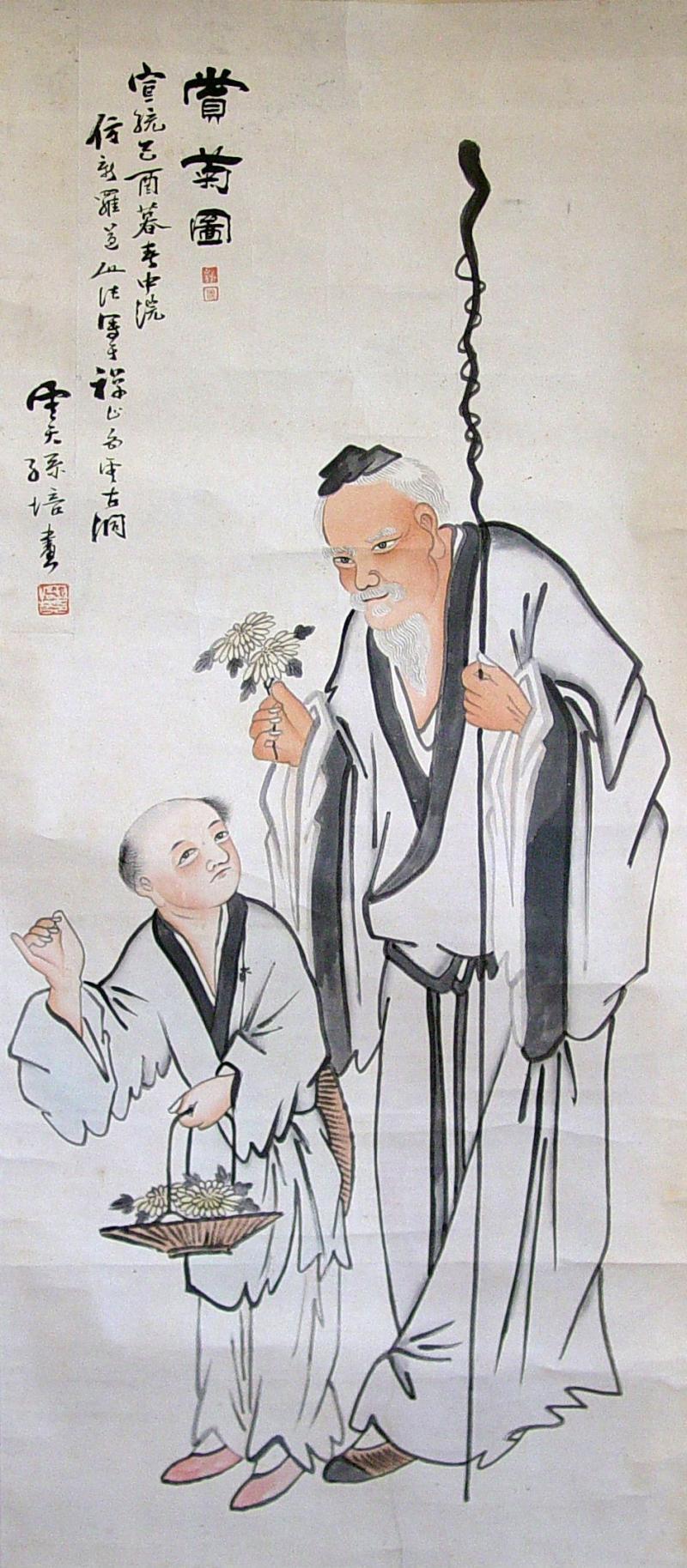
Fig. 0.1: Chinese Scholar by Hu Pei
This book is an introduction to the systematic thinking that is the science of education, designed for two audiences. One is a general readership including professional educators interested to reflect upon some fundamental questions about the nature of the profession and the science that underpins that profession. Another is people embarking on a program that will lead to a teaching qualification. For both audiences, this book offers a distillation of key ideas of the discipline of education, and the body of knowledge upon which the discipline is grounded.
More than simply reflecting on the traditions of the discipline, however, this book ventures into a re-conceptualisation of education for our dramatically changing times. The title ‘New Learning’ points to the need to redesign the way we ‘do’ education as a social experience known currently as ‘schooling’, to meet the demands of our changing times and to benefit from the opportunities that these changing times offer us. Today’s science of education needs to be able to ‘read’ contemporary social conditions and adjust our educational institutions and processes if it is to be truly useful. We want to suggest that a redesigned science of education is required today as a foundation of knowledge for a renewed teaching profession. As such, we hope this book will help experienced and beginning educational professionals to re-conceive the scope and shape of the profession of teaching and the science of education.
The meaning of ‘science’
What is ‘science’? The more profound and important the concept, the harder it seems to define, and the more it seems to be plagued by a wide, even contradictory, range of meanings.
Mention the word ‘scientist’ and the first thing that may spring to mind is a per- son in a laboratory coat, conducting an experiment. You might think of the chemistry, physics, geology and biology taught as subjects in school or university. This meaning of ‘science’ mainly refers to the natural and technological worlds.
Think a bit longer and you’ll realise that term is also used to describe some of the ‘social sciences’. By the time we come to realise that the word encompasses both the natural and social worlds, its scope is huge – from forests to politics, from physics to education.
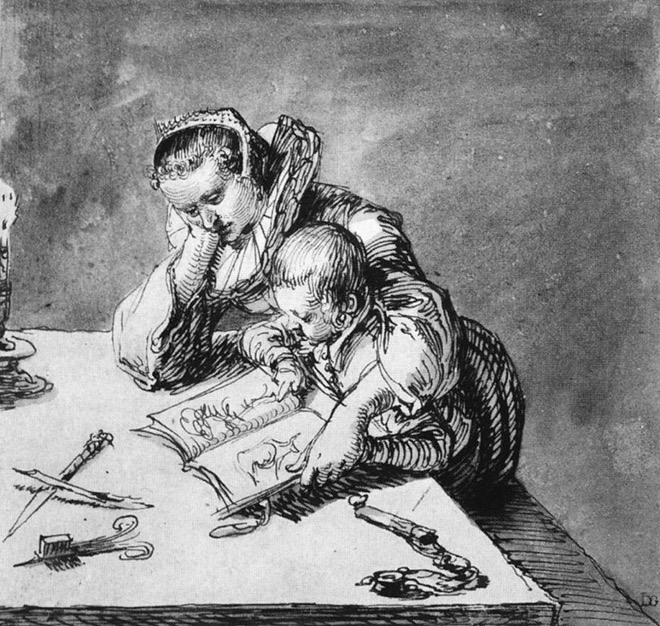
If we tease out the underlying meanings of ‘science’ across such a broad range of domains of application, we might conclude that it refers to a privileged kind of knowledge, created by people with special skills who mostly work in research, academic or teaching jobs. It involves careful experimentation and focused observation. Scientists systematically explore phenomena, discover facts and patterns and gradually build these into theories that describe the world. Over time, we come to trust these as the authority of science (Chalmers 1976).
These meanings of science are quite unexceptionable. In this spirit, we might create a science of education that focuses on the brain as a biological entity and the mind as a source of behaviours (cognitive science). Or we might set up experiments in which we carefully explore the facts of learning in order to prove what works or doesn’t work. Like the medical scientist, we might give some learners a dosage of a certain kind of educational medicine and others a placebo, to see whether a particular intervention produces better test results (randomised controlled experimentation) (National Center for Education Evaluation and Regional Assistance 2003). This is the conventional view of science. And these kinds of thinking can be perfectly useful.
Often, however, we need to know more. It is indeed helpful to know something of how the mind works, but what of the cultural conditions that also form the thinking person? We need good proofs of which kinds of educational interventions work, but what if the research question we are asking or the tests we are using to evaluate results can only measure a narrow range of capacities and knowledge? For instance, what if the tests can prove that the intervention works – scores are going up – but some learners are not engaged by a curriculum that has been retrofitted to the tests? What if the tests only succeed in measuring recall of the facts that the tests expect the learners to have acquired – simple, multiple-choice or yes/no answers? A critic of such ‘standardised testing’ may ask, what’s the use of this in a world in which facts can always be looked up, but problem solving and creativity are now more sought- after capacities, and there can be more than one valid and useful answer to most of the more important questions? (Schwandt 2005; Erikson and Gutierrez 2002; Popkewitz 2004)
For these reasons, we want to outline a broader understanding of the discipline of education, based on a broader definition of science. There’s nothing wrong with doing science in its narrower senses, so long as this work is balanced with a ‘bigger- picture’ view of science.
‘Science’ comes into English from the Latin word sciens (‘knowing’). However, our modern conception of science is not just any old knowing. It consists of a variety of specially focused things you do that distinguish everyday, commonsense knowing from an organised, ordered, socially and historically constructed knowing. It is regarded as trustworthy because of the thoroughness exerted in its making, the knowledgeability of its practitioners, its effectiveness in providing solutions and its openness to reconsideration and revision. These special ways of knowing distinguish an everyday art from the practice of a professional. As we explain in further detail as this book unfolds, some of these special things you do to know when you are being scientific are experiential (including focused reflection on what you know from your everyday experience and careful observation in new and unfamiliar settings), others conceptual (carefully defining concepts and building theories that tie these concepts together into patterns of interpretation), others analytical (explaining how things work as well as whom and what they are for) and still others applied (testing how knowledge works in practice, being creative and innovative). There are, in other words, quite a few different types of things you can do to know in ways that are more systematic in their methods and reliable in their results than everyday, casual knowing.
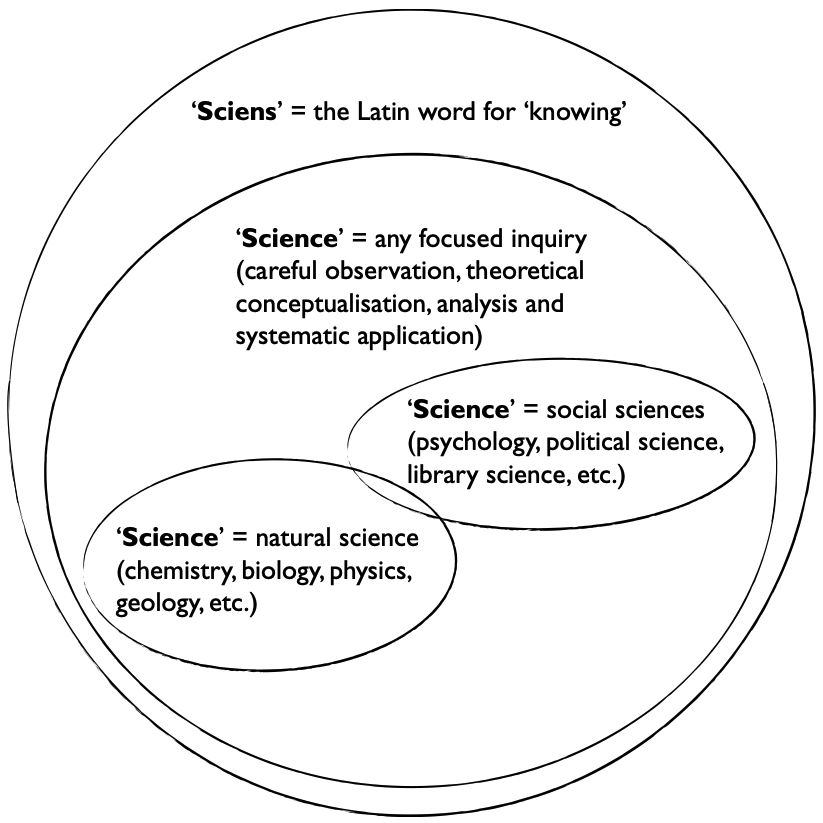
The interdisciplinary discipline
The discipline of education is grounded in the science of learning, or how you come to know. It is a science that explores what knowing is. It focuses on how babies, then young people, then adults, learn. Education-as-science is a specially focused form of knowing: knowing how knowing happens and how capacities to know develop. It is, in a sense, the science of all sciences. It is also concerned with the organisation of teaching that supports systematic, formal learning and the institutions in which that learning occurs.
We want to make this special claim for the science of education for some practical as well as principled reasons. Too often, education is regarded as a poor cousin of other disciplines in the university – the natural sciences, the humanities and the other professions, for instance. It is regarded as something that enables other disciplines, rather than being a discipline in its own right. This is often reflected in reduced levels of research funding, lower student entry requirements and the destination salaries of graduates. Education seems to be less rigorous and derivative. Its disciplinary base borrowed from other, apparently more foundational disciplines – sociology, history, psychology, cognitive science, linguistics, philosophy – and the substantive knowledge of various subject areas, such as literature, science and mathematics.
For sure, education is broader-ranging and more eclectic than other disciplines. Education draws on a number of disciplinary strands – the philosophy of knowledge (epistemology), the cognitive science of perception and learning, developmental psychology, the history of modern institutions, the sociology of diverse communities, the linguistics and semiotics of meaning – to name just a few of education’s disciplin- ary perspectives. These and other strands come together to make the discipline of education. In this sense, education is more than a discipline – it is an extraordinarily interdisciplinary endeavour.
The metadisciplinary discipline
Education is also the soil in which all the other disciplines grow. You can’t do any of the other disciplines in a university or college except through the medium of education. No other discipline exists except through its learning. A novice can only enter a discipline – physics, or law, or history, or literature – through education, learning the accumulated knowledge that has become that discipline. In this sense, education is more than just interdisciplinary. It does more than just stitch together other disciplines. It is a metadiscipline, essential as the practical grounding of all disciplines. Education is the discipline of disciplines.
Education is the systematic investigation of how humans come to know. Its inter- ests include the learning processes of babies in the informal setting of the home. It also focuses on formal, institutionalised learning at all its levels from preschool to school, college and university. Education is also concerned with the processes of informal learning – how you learn to use an interface, for instance, or play a game. It is concerned with how organisations and groups learn, collecting and acquiring knowledge that is applied in their communities, professions and workplaces. In fact, as knowledge is needed and used everywhere, learning happens everywhere. There is no part of our lives where the discipline of education cannot provide a useful perspective.
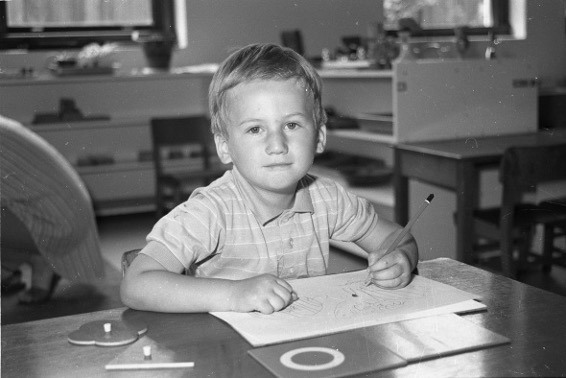
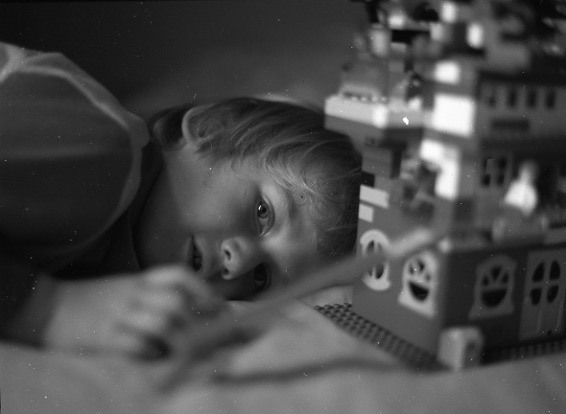
Maybe, then, more than just an interdisciplinary place that ties together shreds and patches from other disciplines – a bit of psychology here, a bit of sociology there, a bit of management there – education should be regarded as the metadisciplinary foundation of all disciplines. Its focus is the science of knowing, no less.
The metadiscipline of education inquires into learning, or how we come to know and be. Education-as-metadiscipline explores knowing and being. It analyses how people and groups learn and come to be what they are. As such, it is a specially expansive exploration of knowing. It is interested to know how knowing happens and how capacities to know develop.
Education is the new philosophy
Education is sometimes called ‘teacher training’ (not ‘teacher education’, even). The phrase is often sadly apt. It seems about right when one surveys the narrowly instrumental intellectual horizons of education courses – prescribing the steps in planning and teaching a lesson, the tricks for maintaining discipline among 20 or 30 young people who can imagine doing other things that are more fun, and learning the content knowledge that has to be transmitted to students so they do well in their tests. Education, then, seems to have a myopically pragmatic focus – the stuff of institutional mechanics, job-specific routines, and testing and accrediting the knowledge that students have acquired. Such a mundane focus prevents education from appearing to be a discipline proper, or even a rigorously interdisciplinary practice, let alone a metadiscipline. The consequence is that this discipline that should be getting to the heart of all intellectual matters is reduced to narrow procedural formulae. Education’s graduates, instead of becoming innovators and forward thinkers, become wedded to the familiar rules and traditional practices of institutionalised schooling.
But what if we were to think of education differently, to think of it more expansively and more ambitiously? Then the intellectual and practical agenda of education would be no less than to explore the bases and pragmatics of human knowledge, becoming and identity. Education asks this ur-disciplinary question: How is it that we come to know and be, as individuals and collectively? If this is education’s central question, surely, then, we can argue that it is the source of all other disciplines? It is the means by which all other disciplines come into being.
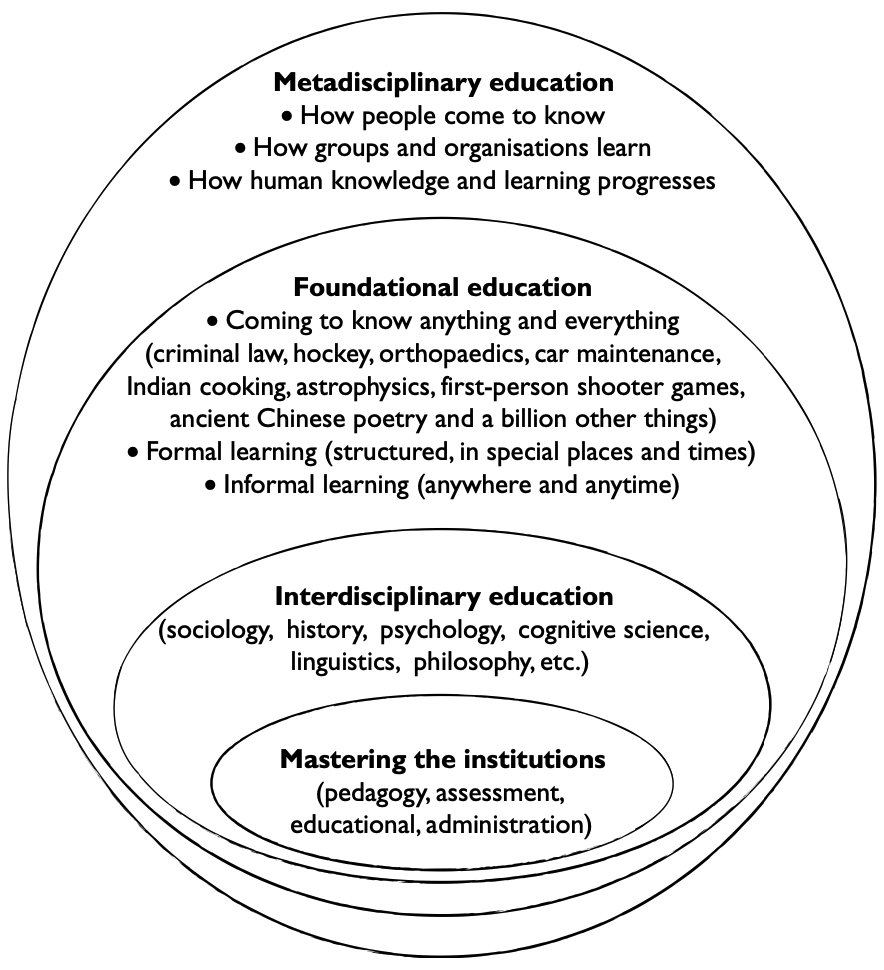
Philosophy used to claim a metadisciplinary position like this. It was the discipline where you not only thought, but thought about thinking. However, for decades, philosophy has been making itself less relevant. It has become too word-bound, too obscure, too formal and too disconnected from practical lived experience.
But philosophy’s metaquestions still need to be asked. Education could – we would say should – take the former position of philosophy as the discipline of disciplines, and do it more engagingly and relevantly than philosophy ever did.
Education is the new philosophy (Kalantzis and Cope 2014).
